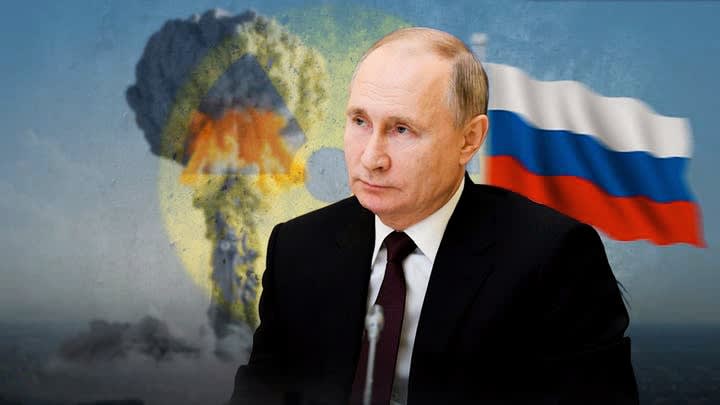The British newspaper "The Telegraph" revealed, after analyzing satellite images, that Russia has moved its most important strategic nuclear bombers to a remote airbase in the far east of the country, following a major Ukrainian drone attack targeting Russian territory last Sunday.
According to the images, two Tu-160 aircraft were transferred to the "Anadyr" airbase, located in the desolate Chukotka Peninsula, about 4000 miles away from the front line, and only about 410 miles from the US state of Alaska.
The base is isolated and can only be accessed by air or sea, and was built during the Soviet era in anticipation of possible attacks from the United States during the Cold War.
The Ukrainian attack targeted five strategic airbases inside Russia, using drones in a coordinated operation described as one of the largest strikes since the outbreak of the war.
Russian information indicates that the operation was planned meticulously for over a year, amid speculations of direct involvement from US military intelligence, as reported by the Russian platform "Strategic Culture Foundation."
These targeted bases house bombers that are a key component of the "nuclear triad," the triad being the military system consisting of land, sea, and air-based means capable of carrying nuclear warheads.
The Ukrainian strike was considered a serious strategic signal on Kiev's ability, and perhaps that of its Western allies, to strike deep into Russia and disable its nuclear power centers.
In his first comment, Russian President Vladimir Putin said during a meeting with top weapons industry officials in the country that top priority must be given to developing the nuclear triad within the new armament program.
He added that this triad has been and will remain the most important guarantee of Russia's sovereignty, and a crucial balancing element in global powers.
Putin confirmed that 95% of the weapons in Russia's strategic nuclear forces have been completely modernized, considering this as the "highest indicator among all nuclear powers in the world."
This escalation comes at a time when pressure is increasing from NATO to enhance its capabilities in facing Russia, while the Kremlin describes NATO as a "tool of aggression."
As Russian aircraft are moved to distant bases and warnings and statements intensify from both sides, concerns grow about the world entering a new phase of an arms race with unpredictable consequences.

